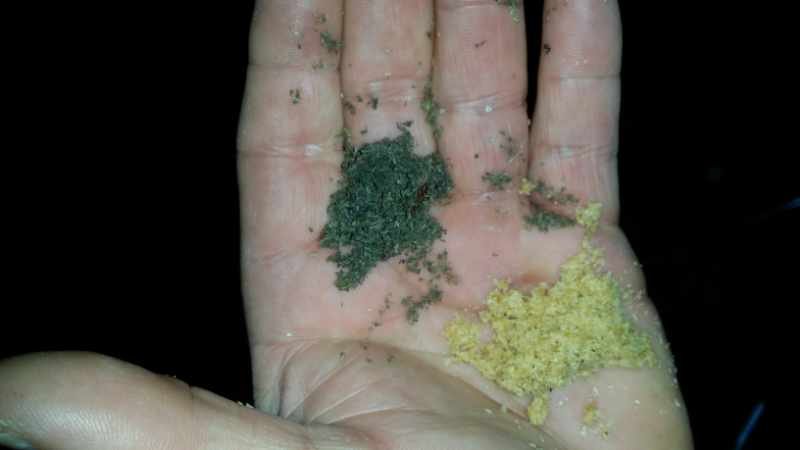A Comprehensive Comparison
Great Choice Flooring can do 2 types of carpet cleaning … Hot Water Extraction (HWE), often referred to as “steam cleaning” and Dry Carpet Cleaning using a dirt absorbing compound.
Both methods have their advantages and disadvantages, making them suitable for different situations.
Let’s explore the key differences between them.
Hot Water Extraction (“Steam Cleaning”)
How It Works
Hot water extraction involves pre-treating the carpet with a cleaning solution then injecting hot water at high pressure into the carpet fibres. This water is then immediately sucked up with extremely powerful vacuums along with dirt, allergens, and grime.
Pros
- Deepest Possible Cleaning Power: Removes a huge amount of embedded dirt, allergens, and bacteria, making it ideal for high-traffic areas and homes with pets or allergies.
- Effective on Tough Stains: The combination of heat, water and cleaning agents tackle stubborn stains effectively and safely.
- Sanitizes Fibers: The high temperature helps kill bacteria and germs, leaving carpets hygienic.
Cons
- Longer Drying Time: Carpets can take 1- 8 hours to dry, depending on the humidity, carpet type, and ventilation.
- Not Ideal for Ultra Delicate Fibres: Silk, Jute, Sisal and other water-sensitive materials may not respond well to this method.
Best For
- High-traffic areas
- Annual deep cleaning
- Homes with pets or allergy sufferers
Dry Carpet Cleaning (Absorbent Compound)
How It Works
This method involves spreading a detergent-coated powder over the carpet, agitating it with a mechanical brush, allowing the compound to absorb dirt, and then vacuuming it up.

Notice how it starts off the nice golden colour and then, as it absorbs the dirt in the carpet, it turns into the darker blacker colour!
Pros
- Quick Drying Time: Carpets are ready to use within 1–2 hours, making it ideal for busy households or commercial spaces.
- No Risk of Over-Wetting: Since minimal moisture is used, there’s no risk of mold or mildew.
- Safe for Delicate Fibers: Works well on water-sensitive materials like wool and silk.
- Convenient for Routine Maintenance: Perfect for interim cleaning between deep cleans.
- Smells Great: Some say the beautiful odour hangs around for longer
Cons
- Less Effective on Deep Soil: It doesn’t penetrate as deeply as hot water extraction, so it may not remove deeply embedded dirt or allergens.
- Potential Residue: If not vacuumed thoroughly, the cleaning compound can leave a residue in the carpet, though this will go as the carpet is regularly vacuumed
- Higher Per-Square-Foot Cost: While the overall cost may be lower for small areas, the per-square-foot cost is often higher than hot water extraction.
Best For
- Routine maintenance
- Commercial spaces needing minimal downtime
- Delicate or water-sensitive fibers
Key Comparisons
| Feature | Hot Water Extraction | Dry Carpet Cleaning |
|---|---|---|
| Cleaning Depth | Deepest clean possible, removes embedded dirt and allergens | Surface-level clean, less effective on deep soil |
| Drying Time | 2-8 hours | 1–2 hours |
| Cost | Similar | Similar |
| Stain Removal | Best for tough stains | Less effective on stubborn stains |
| Fibre Compatibility | Not ideal for ultra-delicate fibres | Safe for delicate fibers |
| Risk of Over-Wetting | Yes, if mishandled (we’ve never don it!) | None |
| Eco-Friendliness | Uses more water and energy | Uses less water, lower carbon footprint |
| Best Use Case | Deep cleaning, high-traffic areas | Routine maintenance, quick turnarounds |
Which Method Should You Choose?
The choice between hot water extraction and dry carpet cleaning depends on your specific needs:
- Choose Hot Water Extraction if:
- Your carpets are normal or heavily soiled or stained.
- You need a deep clean to remove allergens and bacteria.
- You can allow sufficient drying time.
- Choose Dry Carpet Cleaning if:
- You need a quick turnaround with minimal downtime.
- Your carpets are made of delicate or water-sensitive fibers.
- You’re looking for routine maintenance rather than a deep clean.
Final Thoughts
Both hot water extraction and dry carpet cleaning have their place in maintaining clean and healthy carpets.
While hot water extraction offers a deeper clean, it comes with longer drying times and often slightly higher costs. On the other hand, dry carpet cleaning is faster and safer for delicate fibres but may not be as effective for deep cleaning.
For the best results, consider alternating between the two methods: use hot water extraction for annual deep cleaning and dry carpet cleaning for interim maintenance. If you’re unsure which method is right for your carpets, ask us for advice … we’re only at the end of the phone!
